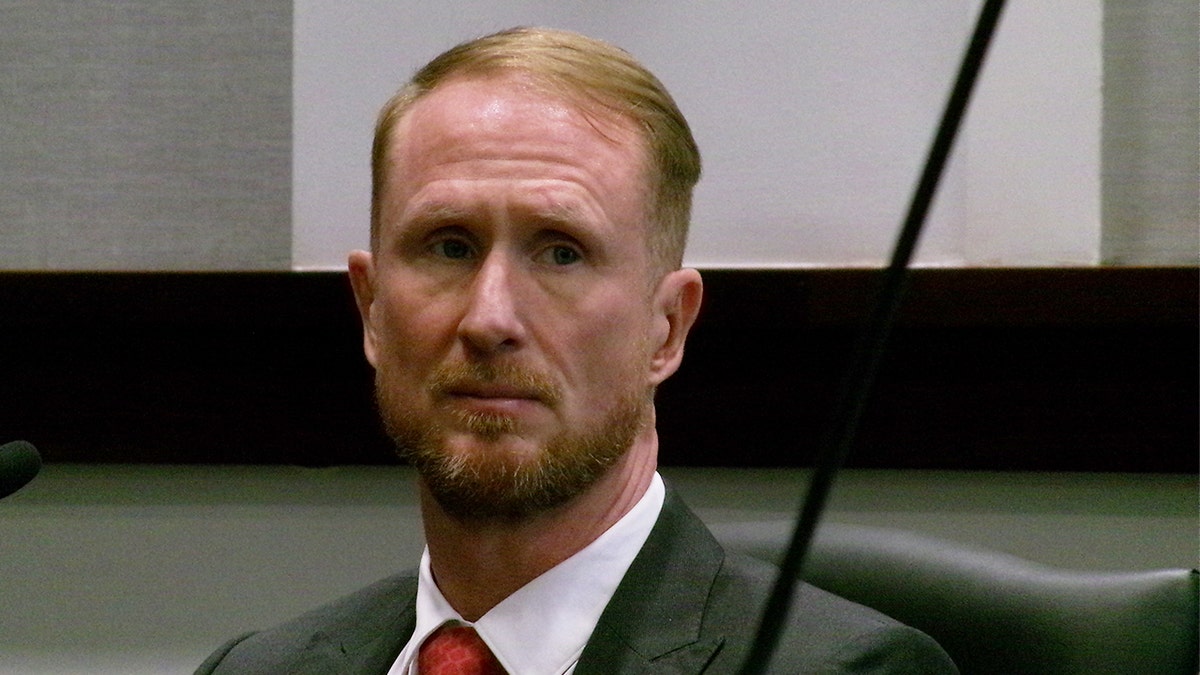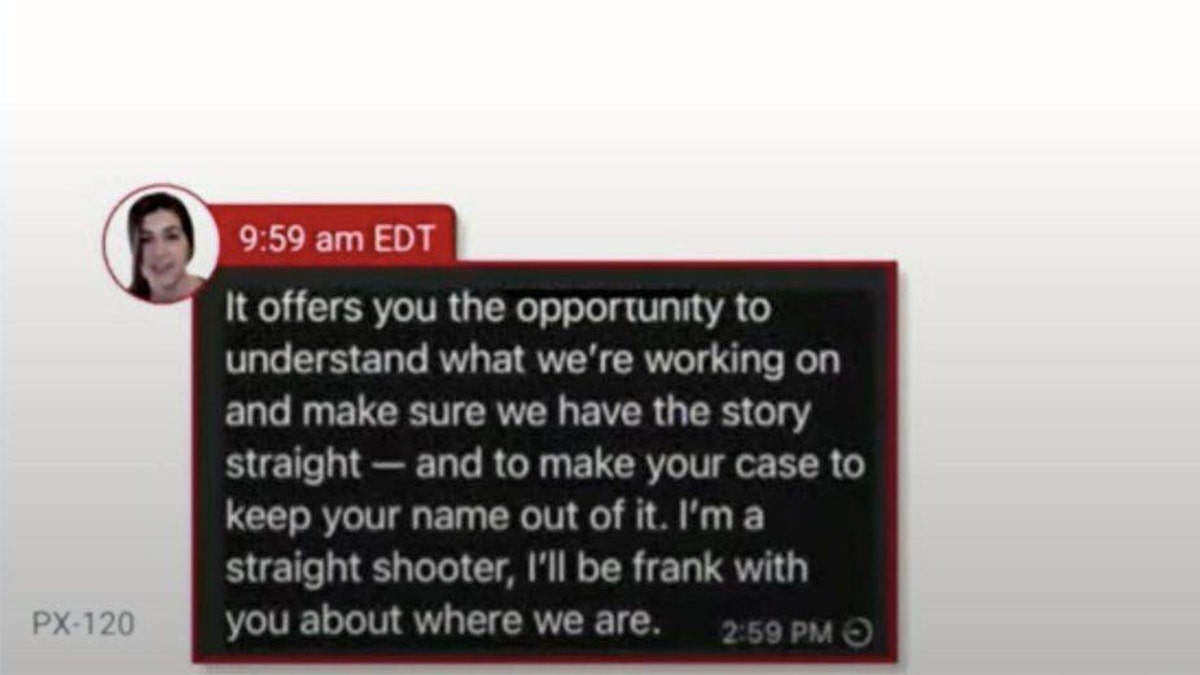CNN defamation trial: Jurors submit brutal questions on reporter’s aggressive pursuit of Navy veteran

PANAMA CITY, FLORIDA – The jurors in the high-stakes defamation trial against CNN saved some of their toughest questions for the reporter over her aggressive pursuit of U.S. Navy veteran Zachary Young, the plaintiff in the case.
Young alleges CNN smeared him in a November 2021 report by correspondent Alex Marquardt that first aired on “The Lead with Jake Tapper,” suggesting he illegally profited off desperate people trying to flee Afghanistan following the Biden administration’s military withdrawal, implying he was involved in “black market” dealings and ruining his professional reputation as a result.
Katie Bo Lillis, the intelligence and national security correspondent who collaborated with Marquardt on the story, was peppered with questions about her conduct in her zealous effort to get Young to engage with CNN.
The questions, which the jurors submitted in writing, were read aloud to Lillis by Judge William Henry.
CNN DEFAMATION TRIAL: JUDGE SCOLDS CNN’S LEAD COUNSEL, ORDERS APOLOGY TO PLAINTIFF: ‘THIS ISN’T KINDERGARTEN’
CNN correspondent Katie Bo Lillis was grilled by juror questions over her conduct with U.S. Navy veteran Zachary Young during the network’s high-stakes defamation trial. (Fox News Digital/Law & Crime)
“Do you feel that Americans are obligated to speak to you [or] CNN?” Henry read the first question.
“No, no one is obligated to speak to us,” Lillis responded. “It is their free decision if they choose to or don’t choose to.”
“To what length must someone go to in order not to speak to you? Must they speak to you to not speak with you?” the judge read the next question.
“That’s a really good question,” Lillis amusingly reacted.
CNN DEFAMATION TRIAL: NETWORK’S FAIRNESS CHIEF DEFENDS CONTROVERSIAL REPORT AT CENTER OF LAWSUIT
After a lengthy pause, Lillis told the jurors she has a “responsibility to the people who are in the story” as well as “the American public, the American taxpayer, particularly when I’m writing about government activities.”
“In this case, we had someone who might be profiting off of the misery of others off of a just cataclysmically tragic situation in Afghanistan. I felt that the higher priority that I had was to continue to push for answers from Mr. Young, rather than to sort of back away from the hunt for for answers here,” Lillis said. “Because in this instance, I was thinking about Afghans trying to get out of the country. And I was thinking about the many, many service members and former, you know, agency officers, CIA officers, officers who I knew for whom this was incredibly personal and incredibly painful, this notion that there were people that were going to be left behind.”

U.S. Navy veteran Zachary Young told Lillis he’d only speak to her if she would guarantee she wouldn’t identify him in any reporting. (Jessica Costescu)
Lillis was then asked “When do you accept someone not wishing to speak or comment?” to which she responded “It very, very much depends on the context,” adding that she had a “higher priority” to dig into Young’s activities.
The same juror then asked a follow-up “Do they lose this right as they express discomfort or evade questions?” Lillis stressed that anyone has “the right” not to speak with her but pointed out that Young initially reached out to her as a potential perspective client, but that was only after he received a notification that Lillis viewed his LinkedIn profile.
“He could have stopped answering any of my questions. He could have completely disengaged. He did none of those things. He continued to talk to me,” Lillis told the jurors.
CNN DEFAMATION TRIAL: REPORTER PRESSED ON HIS HEAVY PURSUIT OF NAVY VETERAN AS DEFENSE DOWNPLAYED INVOLVEMENT
One of the jurors referenced an exchange Lillis had with Young, who didn’t want to be identified in any report, when she told him that talking off the record would give him the “opportunity to understand what we’re working on… and to make your case to keep your name out of it.”
“A chance to make your case to keep your name out of it sounds akin to guilty until proven innocent,” the juror wrote as read aloud by Judge Henry. “Can you clarify how your approach is really the opposite, innocent until proven guilty?”
“Well, first of all, you know, we’re not a court of law,” Lillis responded. “Like the standards for you know whether somebody’s conduct is newsworthy, whether it winds up in a news article is not whether it’s illegal or not. In this instance, it is, you know, whether it should be exposed that someone could be profiting off of the misery of Afghans,” adding “We had enough corroboration in the form of these text messages, essentially, to suggest that there was a reason to be asking these questions, and so we were continuing to ask them. But had, you know, had a case been made that there’s more here, then we would have backed away. Does that answer the question?”
“It wasn’t answered,” Judge Henry said with a chuckle, then moved on to the next question “Can you understand, given this fresh perspective, that your approach could scare someone?” He clarified it was a follow-up to the previous question.

One of the jurors accused CNN’s Katie Bo Lillis message to Navy veteran Zachary Young about him making his case why he shouldn’t be reported on was “akin to guilty until proven innocent.” (Fox News Digital/Law & Crime)
Lillis conceded that hypothetically someone “might be frightened by being approached by a reporter,” but refuted the notion in this case since Young was publicly advertising his own services on LinkedIn and that he messaged her first.
“If you feel that vulnerable people are being taken advantage of, then is someone obligated to talk to you?” another juror had asked, to which Lillis responded by reiterating no one is “obligated” to talk to her.
“Do people have a right to not be named in a news story?” one juror asked, stumping the CNN reporter.
CLICK HERE TO GET THE FOX NEWS APP
After a moment of pondering, Lillis said she was struggling with the word “right.”
“I believe it is the responsibility of news organizations and reporters like myself to think carefully about whether the conduct that we are going to expose and the person that we are going to name whether that is newsworthy, whether it is in the public interest to know that this conduct is happening or and that this named person is the one carrying it out,” Lillis said. “And in this instance, I feel very strongly that that bar was met.”
The last juror question pertained to her judgment of Young when he would go silent or block perspective clients once he learns they do not have the financial means to hire him, asking “What do you feel is an appropriate way to disengage?” Lillis responded by saying “a simple ‘I can’t help'” would probably be an appropriate response, adding that what Young did “seemed a little harsh to me.”
The trial resumes on Thursday and will be streamed live on Fox News Digital.





